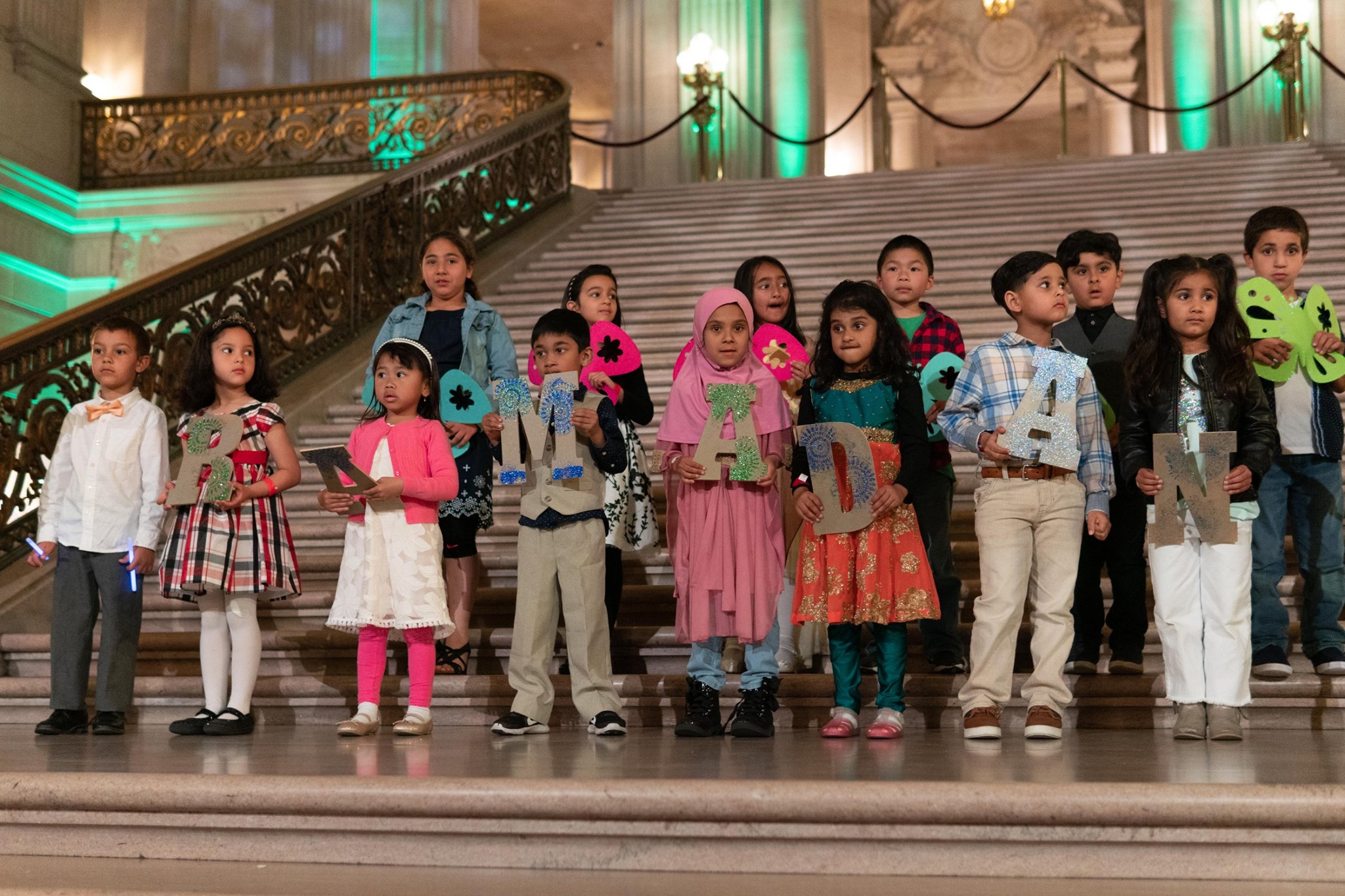Each year, Muslim families in San Francisco must choose between pulling their children out of public school to observe two religious holidays or missing out on the important celebrations.
One is Eid al-Fitr, which marks the end of Ramadan—which runs from April 1 to May 1 in 2022—when Muslims fast from sunrise to sunset every day for one month. The other is Eid al-Adha, a day of remembrance known as “Festival of Sacrifice.” Both holidays shift dates every year.
While San Francisco Unified School District students can be excused by their parents for the absence, it means falling behind in class.
“It doesn’t change the fact that they have to make up whatever they miss,” said Sharif Zakout, an organizer at Arab Resource and Organizing Center and San Francisco native. “We don’t want our families to choose between missing school or missing celebrations with their families. We felt like our community has been long overlooked.”
A pending resolution crafted by members of the Muslim community and sponsored by San Francisco Board of Education Commissioner Matt Alexander aims to fix that by directing the district to observe the two holidays the same way the district breaks for Christmas, Lunar New Year and other culturally significant holidays.
The resolution was meant to take effect in the 2022-23 school year and was supposed to be introduced at the school board meeting earlier this week. But President Jenny Lam, who oversaw Tuesday’s meeting—the first featuring Mayor London Breed’s three new appointees and the first to allow in-person public comment since the beginning of the pandemic—did not place it on the agenda.
SFUSD has yet to finalize its academic calendar for the upcoming school year and Lam said the Eid resolution was introduced too late to be incorporated. For Lam to place the resolution on the agenda, which is under her discretion as board president, it would need to be altered to take effect in the 2023-2024 school year.
“As we continue to recover from the pandemic, the board’s going to need to be laser-focused,” Lam said. Delivering on a balanced budget, selecting a new superintendent and getting to the bottom of the missing staff payments are her current prime objectives. “These priorities are also going to support all of our school communities, that includes our Muslim families and students. [The Eid resolution] would have to have the updated year to be established.”
The resolution was born out of a petition started by Sara Ouchene, a senior at Raoul Wallenberg High School, last year as part of a social change class project. She was tired of falling behind in order to celebrate Eid.
“One time, I ended up going to school because I had an important assignment to complete,” Ouchene wrote in a text. “I had only one day to explain to my teachers why I was gone and I only had a day to make up my work along with the new assignments.”
Ouchene hopes students have the day off and for Muslim students to feel represented in the future.
Students participating in Ramadan have also faced difficulties in keeping up with physical education while fasting. Zakout broke his fast at times and “vividly” recalls having a rather unsympathetic teacher that still required him to run the mile.
“I would still be expected to do PE as if I could do PE like everyone else, even though I’m going sunrise to sunset without food and water,” Deema Hindawi, a former SFUSD student, said at Tuesday’s meeting. “The recognition of Eid, especially in this moment, would go a long way in uplifting our community and traditions. Passing this resolution would actually help alleviate issues around racism and xenophobia.”
Organizers called attention to a political climate of anti-Arab and anti-Muslim hate set off by the Trump administration’s immigration policies, continued surveillance in the aftermath of 9/11 and now anti-Asian hate crimes as playing a role in discrimination experienced in schools.
Zakout said SFUSD officially observing the holidays would be a “huge” victory for Muslims in the city, who have sought an official rule such as this for years. Alexander noted it wouldn’t take away academic days from SFUSD students as a whole.
“First, it’s beautiful for people to learn about their peers’ cultural celebrations,” Alexander said. “Districts have the flexibility to arrange their calendar, really however they want. It’s important to do for a community that’s been marginalized and is growing.”
This story has been updated with comments from San Francisco Board of Education President Jenny Lam.
